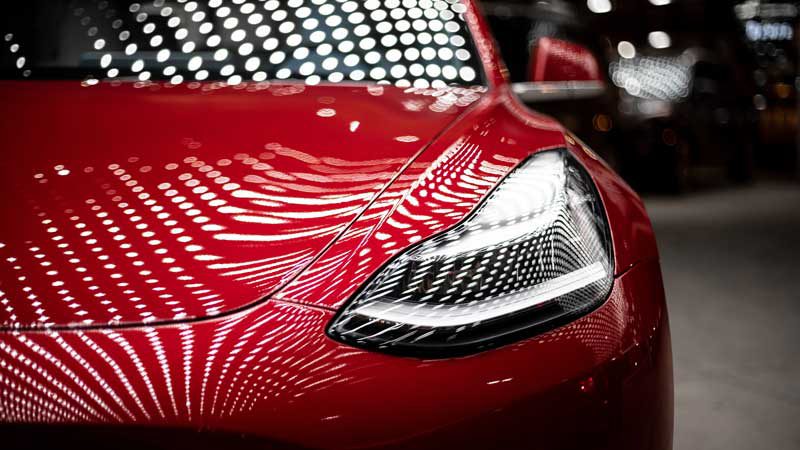Tesla may source batteries for Shanghai Gigafactory from LG Chem

Tesla currently sources the vast majority of its batteries from Panasonic, famously using the Japanese electronics company’s cylindrical 18650 and 2170 batteries in its range of electric vehicles. (It did draw on Samsung when filling the order for the Tesla big battery in South Australia).
The latter is used for the carmaker’s global best-seller, the Model 3 electric sedan – which this month will become one of the top-selling vehicles in the entire Australian auto, market sources have told Renew Economy and The Driven (link to article).
But with Tesla’s Shanghai gigafactory slated to begin production of the Model 3 before the end of 2019 and responsible for some 16% of global EV battery demand, according to market analyst firm Adamis Intelligence, word is that Tesla may be looking to rival battery maker LG Chem to supplement the inevitable increased demand.
According to multiple sources who spoke with Reuters, the Californian carmaker is in “advanced talks” with South Korean LG Chem to supply batteries to Gigafactory 3 in Shanghai.
However, it is currently expanding its battery making capacity whilst modifying plant facilities one sources said, and it is not a huge leap for it to make the change to cylinders, according to a number of separate sources.
While it is likely that initial production at the Shanghai factory will use Tesla’s current Panasonic supply, another source claimed that Tesla may only look to Chinese battery maker CATL down the track due to its inexperience in making Panasonic-like cylindrical batteries.
All sources told Reuters they wish to remain anonymous due to the confidential nature of the talks.
The topic of where Tesla sources its batteries from is of interest for a number of reasons, not least because its best-selling Model 3 is dominating global markets since the California carmaker began its expansion to China, Europe and more recently RHD markets including the UK and Australia.
For the time being at least, this is not likely to slow down.
Sourcing enough batteries for this expansion is a key concern for the EV maker, which in 2018 had to convert all its Gigafactory lines to produce enough Model 3 batteries according to comments made by CEO and founder Elon Musk at Tesla’s Q1 2019 earnings call.
In May Tesla completed its acquisition of battery maker Maxwell batteries, which is developing “dry electrode” battery tech that it says could increase energy density by 20%.
News also recently came to light of a breakthrough in cell technology that could see the EV maker achieve a “million mile battery” in a paper published by a University of Dalhousie research team including Canadian academic Jeff Danh who is part of Tesla’s battery research group.
A battery-focussed Investor Day to discuss battery developments was touted for late 2019 or early 2020 by Musk at the Q1 earnings call, but the CEO later said at Tesla’s Q2 call that this may now not be until February or March.
“Before [we] have battery day, we’re going to do a comprehensive review of cell chemistry module and pack architecture …. The time is probably is about six months like maybe February or March next year,” Musk said.

Bridie Schmidt is lead reporter for The Driven, sister site of Renew Economy. She specialises in writing about new technology, as well as using her technical skills in managing our websites.
No comments:
Post a Comment